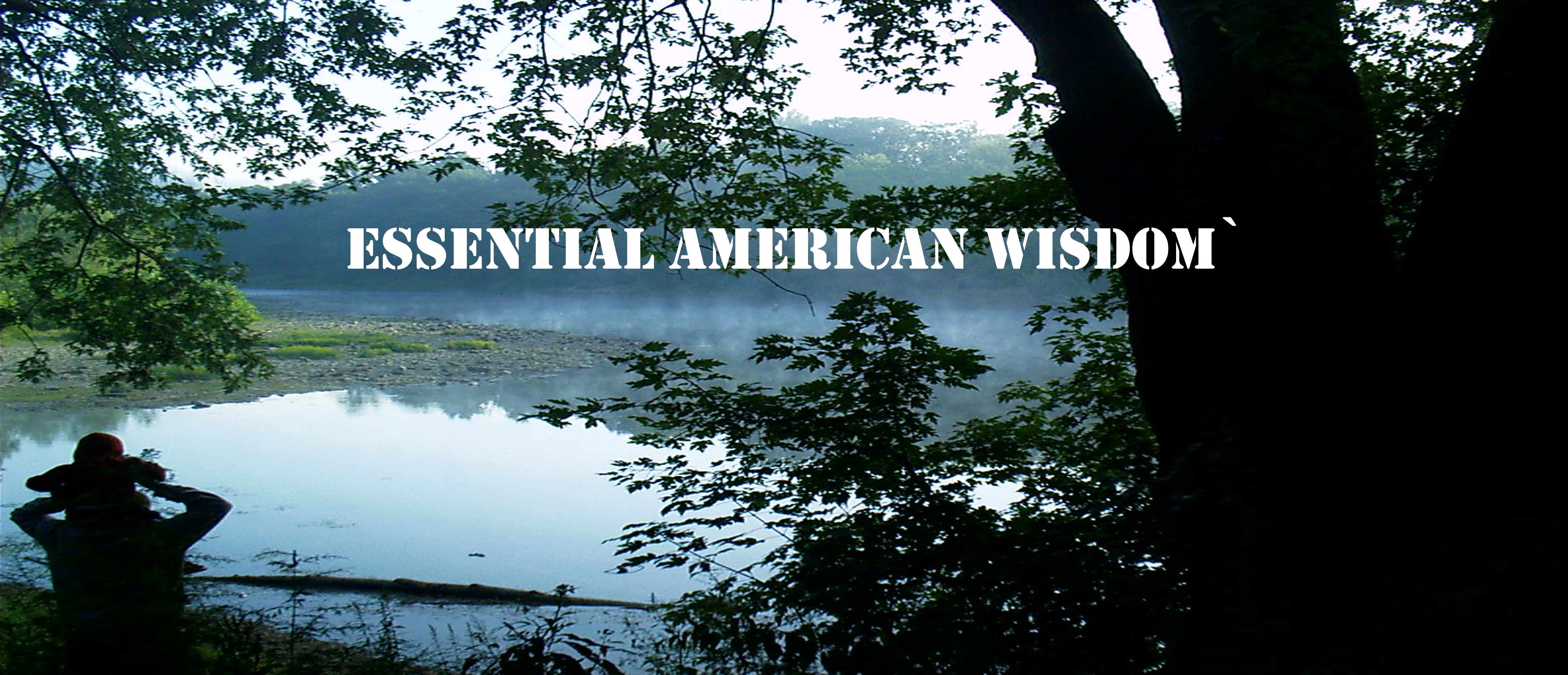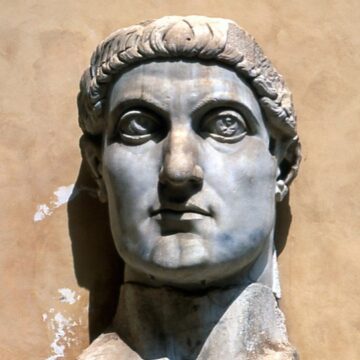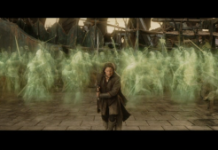In 1840 Thomas Carlyle gave a series of lectures in London about “Heroes and Hero-Worship”. I’m trying to condense some of them into modern easy-to-read English, for they touch on several subjects important to America today, but as seen from a period in Western Civilization when no one had ever heard of the likes of an Adolf Hitler, but did still have a living memory of a Bonaparte, who was different from 20th Century tyrants. I consider some of Carlyle’s commentaries to be right up there with Thomas Paine and Alexis De Tocqueville as belonging on the American student’s bookshelf, only in easier-to-read modern parlance.
Carlyle began his five lectures with the “Hero and Divinity”, only, instead of championing Christianity, he used it as a yardstick, measuring attribute after attribute, by how other cultures, some looked upon poorly by Christians, could still produce true heroes by a Christian measure.
A few Christians today would still find that sort of analysis offensive, but almost all non-Christian audiences would, and since they make up almost half of the American electorate, and 99% of the American Left today, I think the connections Thomas Carlyle made between pagan heroes and their underlying virtues and the virtues we agree underlie a self regenerating moral society are worth exploring.
And since the Christian view of world history began in the Book of Genesis, Carlyle reached back into the pagan prehistoric beginnings of religion to find his Hero.
So he began with Odin, the chief God of the Norse, a true “pagan god”, which, unbeknownst to Carlyle, a century later a renowned scholar of both the Norse mythologies and the Bible, and world famous fabulist, J R R Tolkien, would turn into an entire allegorical world of Good vs Evil called Middle Earth.
And, combined with the Avengers-Marvel Comics film series, 2011-2019 and the original Marvel Comic book character, beginning in 1962, every generation, Baby Boomers thru Z, have all had a taste of these Norse legends.
What Carlyle and Tolkien knew about Norse mythology they knew from the “Edda” which is a set of prose and poetry telling their story, first put down on paper in the 1300’s, in Iceland of all places, as that island is the most remote station of the Norse world, in the north Atlantic, 750 miles to the British Isles, a little further to Norwegian landfall, and, in the other direction, to Greenland.
They both knew that modern science only accepts “written history”, which began around 3500 BC, (5000 years ago), and most peoples’ oral histories predate that by as long as those people were together as a tribe. And we know from our own North American tribes, who’d been here for tens of thousand of years, many of those peoples never ever wrote their sagas down.
(We also know they used about 90% more of their brains than do modern people, so could commit all those stories to memory, such the Irish and Norse bards. Every tribe had their bards.)
So there’s much for us to learn about what most of those “pagans” thought about their god, Nature, and morality that on the total would measure up to being good, versus evil.
Thomas Carlyle seemed to get this. In fact, he seems to have found nobility in innocent beliefs if they serve as the foundations for a moral society which the upper crust of that society seem to mock.
Paganism, Self-worship, Hero-worship and God-worship.
Thomas Carlyle anticipated in 1840 some philosophical issues we confront today on the political front, although I suspect he could never have anticipated the stakes. But interestingly, he seemed to find virtue, and even take the side of people who believed in the myths of their forefathers, on the basis that those myths were grounded on universal Virtue.
Confronting today a paganism which has been made popular, and which is always dicey in a republic that depends on a “popular vote”, it’s interesting that in making preferences among types of pagans, Carlyle found quite a bit positive to say about ancient pagans who believed in gods as heroes.
He began his general analysis about paganism this way, which many of you will find uncomfortably familiar today;
“Surely, it seems a very strange thing, this paganism, almost inconceivable to us in these days. A bewildering jungle of delusions, confusions, falsehoods and absurdities, covering the whole field of life. A thing that fills us with astonishment, for truly it is not easy to understand that sane men (and women) could ever calmly, with their eyes open, believe and live by such a set of doctrines. That men should have worshipped their fellow man as a god, and not him only, but stones, and all manner of animate and inanimate objects, and fashioned for themselves such a chaos of hallucinations by way of a theory of the universe: all this looks like an incredible fable.
“Nevertheless, it is a clear fact that they did.
Then Carlyle went on to distinguish the Norse pagans, and their gods Odin and Thor, who he lauded as people who loved and feared Nature as a symbol of purity, and held as virtuous and divine the overcoming of Fear. He praised them for they worshipped something unseen and bigger than themselves.
He compared Norse “sincerity” about their religion to “Grecian grace” with their theirs, actually liking the Norse gods more than the Greek gods.
“Sincerity I think is better than grace.”
Then he moved on to describe the god-hero, Odin, who began as a man, a great man, a Hero.
I am well aware that in these days hero-worship has gone out and finally ceased. This is an age that denies the existence of great men, denies the desirableness of great men. Show the critics a great man, a (Martin) Luther for example, and they begin to what they call “account” for him, not to admire him, but to take the measure of him—and show him out to be a little kind of man. He was the “creature of the times” they say, the “times” called him forth, the “times” did everything, he nothing—but what, we the little critic, could have done too (#NeverTrumpers?).
We have known when the “times” called loudly for the great man, but not find him when they called. He was not there, Providence had not sent him; the “times” calling its loudest, had to go down to confusion and wreck because he would not come when called.
If we think of it, no “time” need have gone to ruin could it have found a man great enough, a man wise and good enough, and wisdom to discern truly what the “time” wanted—valor to lead it on the right road—these are the salvation of any time.
(A common type, have you ever seen a person who, once he/she has decided on a course of action to fight a common enemy, would rather lose to that enemy than to have a greater man step forward to defeat it in another way?”)
I liken bad “times” with their unbelief, distress, perplexity, with their languid doubting characters, and embarrassed circumstancs impotently crumbling down into ever worse distress toward final ruin
—all this I liken to dry, dead fuel, waiting for the lightning out of the fire to kindle it,
The great man, with his free force from God’s own hand, is the lightning
No sadder proof can be given by a man of his own littleness than disbelief in great men. There is no sadder evidence of a generation to such general blindness to the spiritual lightning, than to abandon the barren dead fuel, unlit.
It is the last consummation of disbelief.
In all great epochs of world history we shall find the great man to have been the indispensable savior of the epoch—the lightning without which the fuel would never have burned.
The history of the world is the biography of such men.
Small critics do what they can to promote unbelief and universal spiritual paralysis, but happily they cannot always succeed. Heroes and hero-worship endures forever while man endures.
Does not every true man feel that he is made higher by doing reverence to what is really above him?
No nobler feeling than this of admiration for one higher than ourselves dwells in the breast of men and women. Religions, ALL religion, stand upon it. No nobler or more blessed feeling dwells in man’s heart. It is very cheering to consider that no skeptical logic or triviality, insincerity and aridity of any time can destroy this noble inborn loyalty and worship that is man.
In times of unbelief, which soon have to become times of revolution, much sorrowful decay and ruin is visible to everybody.
But I seem to see in this indestructibility of the hero the absolute lowest these revolutionaries can fall…only so far; no farther. It is the eternal corner-stone, not only of great men but the reverence for great men, that is the living rock, the one fixed point in modern history, without which, is bottomless and shoreless.
Nature is still Divine, the revelations of the workings of God, and the hero is still worshipful and indispensable.
.





